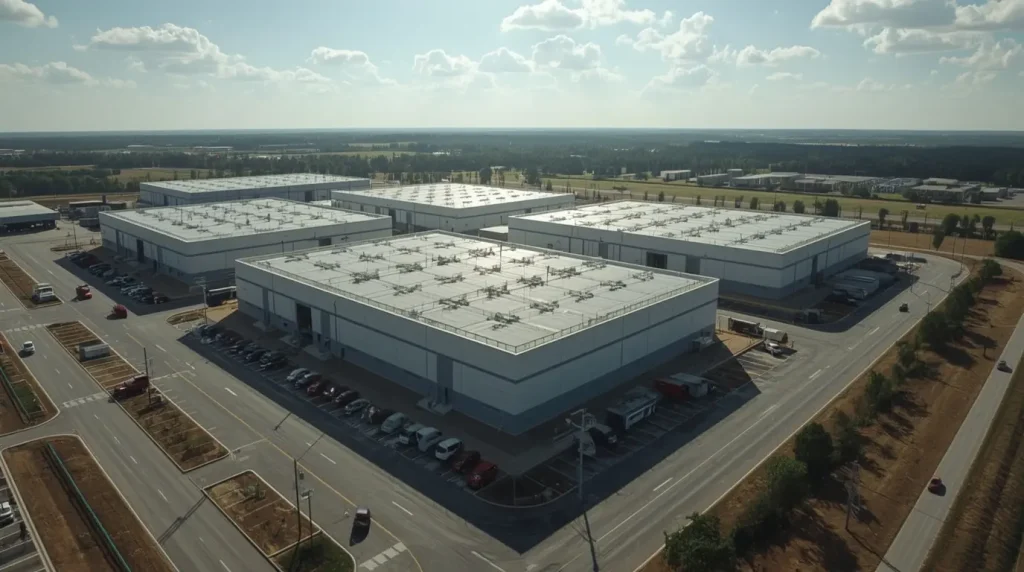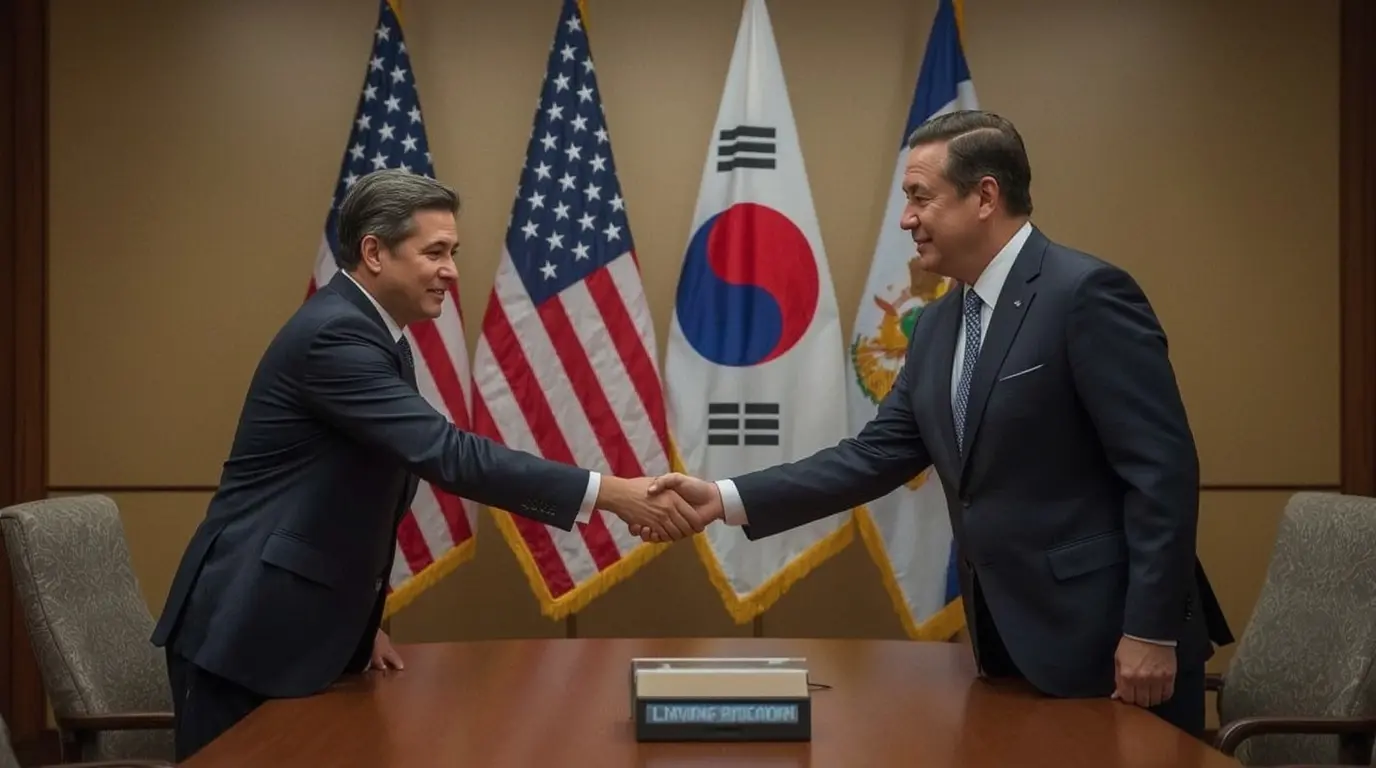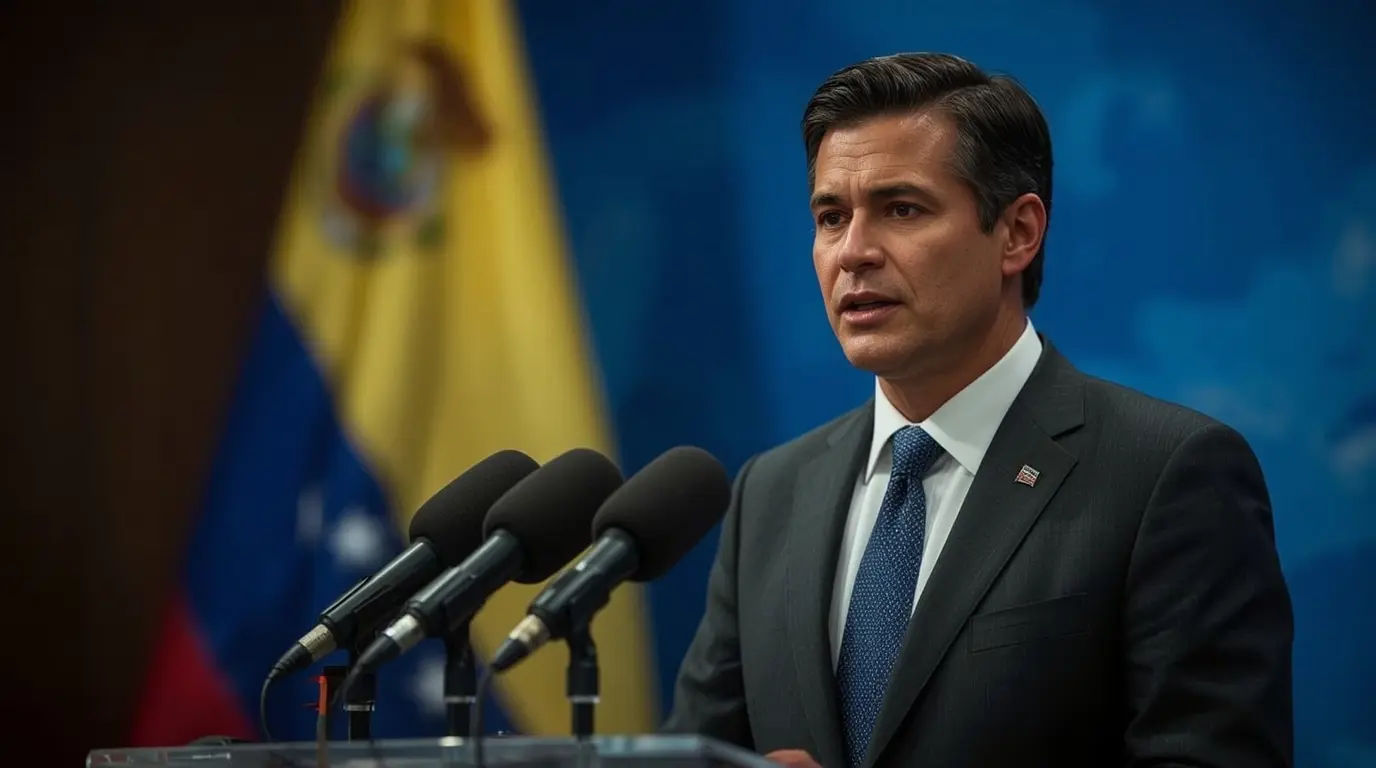Diplomatic Resolution Reached After Largest Worksite Enforcement Operation in DHS History
An important diplomatic outcome was achieved this week when more than 300 South Korean workers swept up in the recent immigration raid at a Georgia Hyundai plant were cleared for immediate return home. The settlement followed extensive round-the-clock talks between U.S. and South Korean officials, illustrating how immigration enforcement, international ties, and global supply chains now move in lockstep across the world.
The operation kicked off on Thursday, September 4, 2025, when hundreds of HSI agents swept through the Hyundai Metaplant in Ellabell, Georgia, roughly 25 miles from Savannah. Four hundred seventy-five South Korean workers were detained during the enforcement action, the vast majority South Korean nationals helping to ramp up production of the plant’s expanding electric vehicle line.
The Georgia Operation: Unprecedented in Scale
The raid became the largest workplace enforcement action ever mounted by Homeland Security Investigations, the criminal arm of ICE. Federal sources report the raid followed a months-long probe into allegations of unlawful hiring practices, labor violations, and other federal offenses at the sprawling facility, home to one of Hyundai’s flagship electric platforms.
ICE recently released video of a large-scale operation at a Georgia battery plant that showed dozens of vehicles pulling onto the property before federal agents began lining up workers outside the building. In the footage, some detainees are seen pressing their hands against a row of buses, while officers search them, shackling their hands, ankles, and waists with plastic restraints.
Steven Schrank, the Homeland Security Investigations special agent in charge for Georgia and Alabama, confirmed that a single warranted affidavit did name a small group of subjects, but the operation was really built upon a broader, long-running investigation. “This was not an immigration operation where agents went onto the premises, rounded up folks, and put them on buses,” Schrank said, highlighting the focus on alleged labor crimes rather than on their immigration status.
Among the Korean workers taken into custody were roughly 50 direct employees of LG Energy Solution, plus about 250 staff members of HL-GA Battery Company, a partnership of LG and Hyundai that operates the joint venture. Nobody arrested was under Hyundai Motor Company payroll, the federal spokesperson added.

Visa Violations and Working Conditions
According to immigration officials, a group of South Korean workers is now facing serious problems under U.S. immigration laws. Some came to the country without proper permission, while others either let their visas run out or came in on the Visa Waiver Program. This program lets people visit the U.S. for up to 90 days for tourism or business, but it strictly tells travelers that they cannot work.
Jorge Gavilanes, an immigration lawyer in Atlanta, clarifies the tight rules for Visa Waiver travelers. He said, “If you’re on a waiver and aren’t allowed to do work, you won’t even get a court date. ICE просто выдает приказ на уход, и вы покидаете страну”.
| Category | Number of Workers | Employment Details |
|---|---|---|
| Total Detained | 475 | Workers at Hyundai Metaplant |
| South Korean Nationals | 300+ | Majority of those detained |
| LG Energy Solution Employees | 47 | Direct employees of LG Energy |
| HL-GA Battery Company Employees | ~250 | Hyundai-LG joint venture workers |
| Other Nationalities | 175 | Various contractors |
Diplomatic Response and Resolution
The rapid detention of nearly 500 workers caught the attention of South Korea, which is an important ally to the U.S. in the Asia-Pacific region. The South Korean Foreign Ministry quickly issued a statement expressing “concern and regret” and sent diplomats to the site to speak with U.S. officials and gather more details.
South Korean Foreign Minister Cho Hyun announced he will go to Washington, D.C., to speak directly with U.S. officials in hopes of settling the dispute. He left Seoul at 7:40 p.m. on Monday, September 8, local time.
The talks already showed promise on Sunday, September 7. South Korea’s presidential chief of staff, Kang Hoon-sik, noted that the agreement to free the detained South Korean workers was in place. “The government will take all the needed steps to quickly secure the release of our detained citizens and to keep our investment projects on track,” Kang said.
The deal lets the South Korean workers leave under the label of “voluntary departure” instead of being deported. Immigration lawyers say this is an unusual clause. Sarah Owings, one of the attorneys for the detained workers, told CNN, “I can’t think of another case in which a country responded by chartering a flight home.”
Seoul will send a chartered aircraft to take the workers back as soon as final checks are done. The Yonhap news agency said the flight is expected to leave on Wednesday, September 10, and get them back home.
Corporate Reaction and Investment Impact
The Georgia raid has thrown a cloud of uncertainty over the state’s biggest economic development project, the 2,900-acre Hyundai Metaplant. The nearly $7.6 billion facility is billed as a cornerstone of the region’s transition to electric vehicles, with projected employment of up to 8,500 workers. The campus will not only manufacture Hyundai-branded electric vehicles, but also house a massive battery plant run as a joint venture between Hyundai and LG Energy Solutions.
In the aftermath, LG Energy Solutions ordered the suspension of nearly all business travel to the U.S. The Korean corporation now advises employees already on the ground to either “immediately return home or stay in place at their accommodations.” The developer described the “immediate release of the detained employees” as its “top priority right now.”
The raid has intensified discussion over whether foreign companies will still be able to shift manufacturing to the U.S., as the previous presidential administration encouraged. How can firms deploy specialized workers from South Korea if visas now appear at risk at the border? Local systems may lack the highly specialized skill set needed to run advanced battery production equipment, leaving companies worried they will have to delay or even scale back expansion plans.
Beyond business circles, South Korean outlets have reacted with alarm. The Dong-A Ilbo called the raid a “shock,” insisting it will have a “chilling effect” on the U.S. investments of Korean firms. When headlines from Seoul frame the action in such stark terms, it signals that the administration will be under mounting pressure to clarify its labor enforcement positions and to restore investor confidence.
Political Context and Immigration Policy
This immigration operation took place amid ongoing initiatives by the Trump administration to expand immigration enforcement and discourage unauthorized employment in the United States. Beginning in January 2025, the White House directed record operating budgets to the Department of Homeland Security, giving Immigration and Customs Enforcement (ICE) renewed authority to conduct large-scale raids at food-processing and warehouse operations across the country.
According to the latest estimates from the Pew Research Center, based on preliminary Census data, the labor force between January and July 2025 declined by over 1.2 million immigrants, largely as a result of tight border measures and rising employment enforcement. These flows have intensified labor shortages in some construction and logistics sectors, sparking hesitancy among employers and suppliers.
On Sunday, September 7, President Trump commented on the raids, describing the operations as necessary while adopting a moderated public tone. He stated on his Truth Social account, “Your investments are welcome. We encourage you to LEGALLY bring the very smartest technical talent to build World Class products. We will streamline the process for you to do so—quickly and legally.” He noted, however, that the administration expects foreign firms to “hire and train American workers in return for access to our market and skilled visa programs.” The White House also expressed openness to a pilot arrangement whereby South Korean specialists in lithium-ion battery and semiconductor manufacturing would instruct a U.S. workforce representative in the latest production methods.
The government raid took place only a week and a half after a high-profile meeting in D.C. between President Trump and South Korean President Lee Jae Myung. At that meeting, they promised a stronger partnership on business, which included Seoul buying $100 billion in American energy and investing $350 billion in U.S. markets in exchange for lower tariffs.
Community Response and Human Impact
On Saturday, a crowd of protesters filled the parking lot outside the Georgia facility. Holding bright banners and chanting in Spanish and Korean, they demanded the release of the hundreds of workers who were swept up in the operation. One man, who asked to be called only Kim, spoke to CNN through a portable mic: “They have kids, spouses, and they still can’t reach each other. It’s just disgusting; they’ re kidnapping them one by one.”
The detained employees were taken to an ICE center in Folkston, which is close to the Georgia-Florida border. As of Friday, September 5, none of them had been formally charged; the agency stressed that the inquiry was still in the early stages.
Attorney Charles Kuck, who specializes in immigration law in Georgia, told CNN that two of his clients were also seized when the raid went down. Both had arrived shortly under the visa waiver option; one came to the U.S. in early August and the other just a few weeks after that.
Looking Ahead: Visa Tweaks and New Investment Paths
Banking-and-technology expert Kang Hoon-sik announced that Seoul will review and tighten visa rules for short-term U.S. business visitors involved in investment plans. The aim is to “stop the next case” before it starts, keeping business flowing smoothly and minimizing travel hassles.
By letting the affected South Korean employees opt for voluntary return rather than face deportation, both capitals claim success. Washington keeps its immigration enforcement promises, while Seoul safeguards its citizens and protects large Korean balances in U.S. capitals and factories.
This settlement underscores the strong, mature partnership that both allies have built. As the two governments put the months-old trade and technology commitments into action, the way they resolved the episode may guide how to solve future sticky situations before they broaden.
Sovereign travel and corporate spending now blend unusual stickiness when supply-chain shocks, trade-rival sparks, and pandemic-gloom converge. Upcoming visitors and U.S. managers may have to brace for new letters and checklists, but the upside is fairer, fairer lane to the U.S. heartland.
Table: Key Events Timeline
| Date | Event |
|---|---|
| September 4, 2025 | ICE raids Hyundai Metaplant in Georgia, detaining 475 workers |
| September 5 | South Korean government expresses “concern and regret” |
| September 6 | Diplomatic negotiations intensify |
| September 7 | Agreement reached for release of South Korean workers |
| September 8 | Foreign Minister Cho Hyun travels to Washington |
| September 10 | Chartered flight to return workers to South Korea (expected date) |
Conclusion
This recent raid and the quick deal that set the detained South Korean workers free show that immigration law pushes up against international ties and economic interests. Instead of escalating problems, diplomacy did the job. The outcome proves that, even in circumstances way outside the negotiating room, trusted partners can leaning on each other, steer tense situations to endings that meet both the law and human dignity.

With South Korean workers now ready to head back to their home country, and the companies reviewing their compliance procedures, this incident is expected to shape the way global firms assign staff to foreign projects and how governments align enforcement actions with diplomatic concerns. The longer-term effect on foreign investment in the U.S. and the rollout of the U.S.-South Korea trade agreement is still unclear, yet involved parties continue to signal a willingness to secure a solution that honors both legal norms and the strong partnership the two nations cherish.
Source: https://edition.cnn.com/2025/09/08/us/wwk-south-korean-workers-detained-georgia
For more incredible stories of everyday news, return to our homepage.





